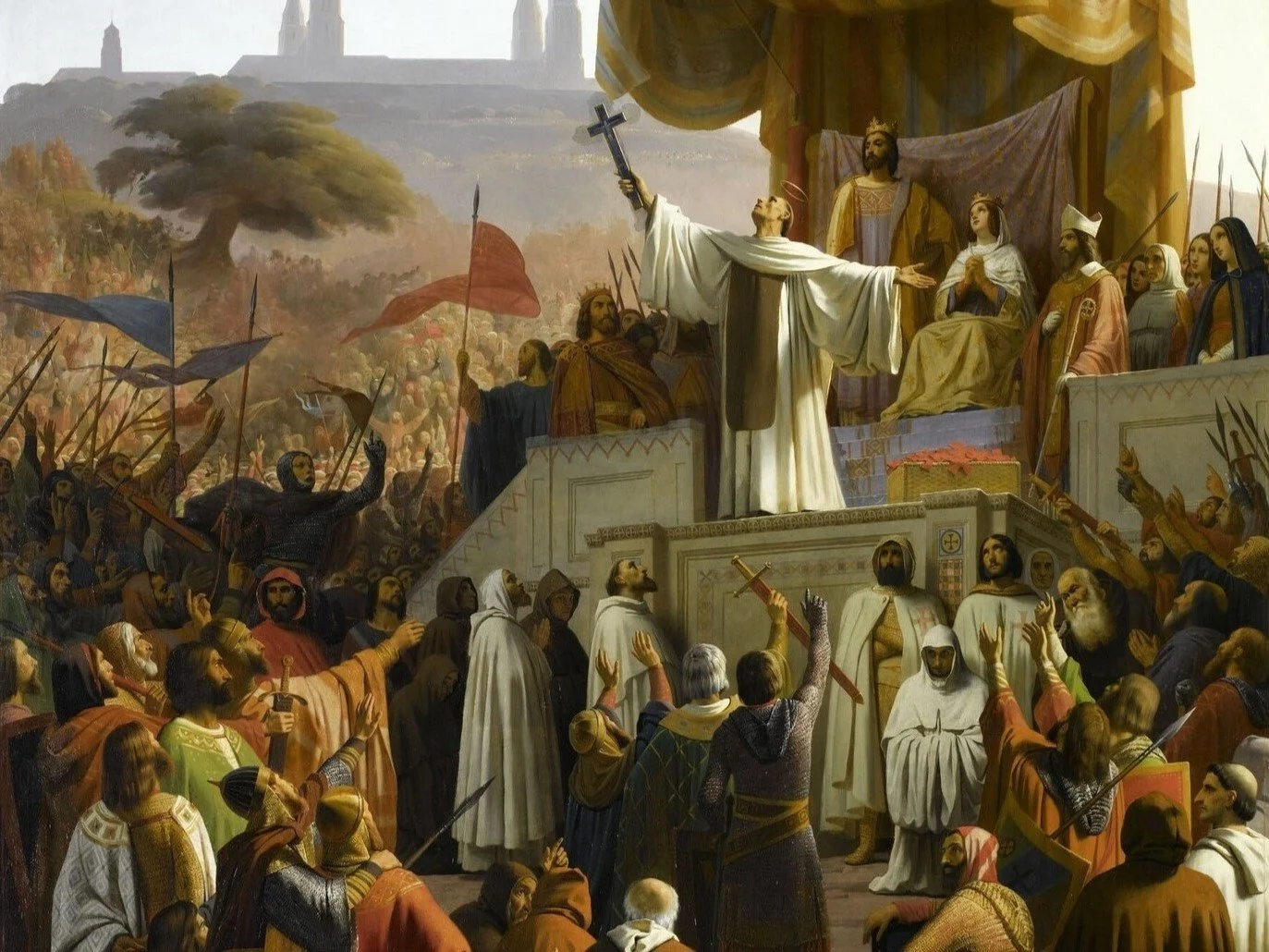Bernard of Clairvaux - Master Persuader
Bernard of Clairvaux (1090-1153) had a way with words, swaying the opinions of influential figures and common people alike.
As an adviser to five different popes and the driving force behind the Cistercian movement, his powers of persuasion were on display often in the first half of the 12th century, winning hearts and minds all over the continent.
Born into an aristocratic family in Burgundy, Bernard was a pious young man, drawn to the ideals of reform of the newly formed Cistercian order. He decided to join up, convincing his brothers and two dozen others to join with him. By age 24, he became the abbot for a new Cistercian house at Clairvaux. He would go on to found more than 150 monasteries in his lifetime.
In 1130, the pope died and two rival popes both claimed to succeed him. This was big trouble, and King Louis VI of France asked Bernard to sort it out. Bernard traveled throughout Europe to get various religious and secular leaders to support his candidate. He won most of the magnates over and they aligned behind one pope.
In 1140, Peter Abelard was making waves while teaching theology at the university of Paris. Not everyone was on board with Abelard’s attempts to reconcile faith and reason and Aristotle.
Bernard had a gift for persuasive oratory and was unanimously chosen to represent the church’s counterargument to Abelard. It was intense. Imagine the Lincoln-Douglas debates but medieval and all about theology. In the end, Abelard had to burn his writings and Bernard had raised his profile significantly.
In 1138, Bernard persuaded a young man to join the Cistercian Order at his monastery in Clairvaux, and in 1145, that man became Pope Eugenius III. Bernard didn’t think he was up to the task, so he wrote On Consideration to help his former pupil to rise to his new office.
Maybe Pope Eugenius III appreciated the advice, maybe not, but before the end of his first year as pope, he called for the Second Crusade.
Bernard was enlisted to help drum up support for the Second Crusade. In 1146 he preached a sermon that so inspired the masses to join the crusade that they ran out of material used to sew crosses on the tunics of the new recruits to mark them out as crusaders.
While the recruiting was great, executing the plan in the field went poorly. The Second Crusade was an epic flop, which tarnished Bernard’s reputation.
Whether preaching to monks in the cloister or rallying crusaders for battle, Bernard's speeches moved his audiences. In both his speeches and his writings, he understood what arguments would convince people. He was made a saint shortly after his death and centuries later would be named a Doctor of the Church.
It’s not just salespeople who have to persuade others in business. Everybody sells. Sales isn’t just moving products off the shelves or new sign-ups for service. Every leader has to sell every day; they have to sell their ideas.
You’ve got to convince your team members that your goals are their goals. You’ve got to convince your peers that helping you is their best interest. You’ve got to convince your management to allocate your area its budget. You’ve got to convince Finance that you are, in fact, authorized to spend that budget. Every day, all the time, you’ve got to persuade.
Bernard of Clairvaux was eloquent, authoritative, charismatic, and set a strong personal example. He knew when to appeal to his audience’s emotions and how to tailor his message to resonate with their concerns.
You may not ever be asked to recruit knights and donations for a crusade, but keep Bernard’s example in mind the next time you need to sell your idea within your organization. Know what is important to your audience, then hammer that point home.



